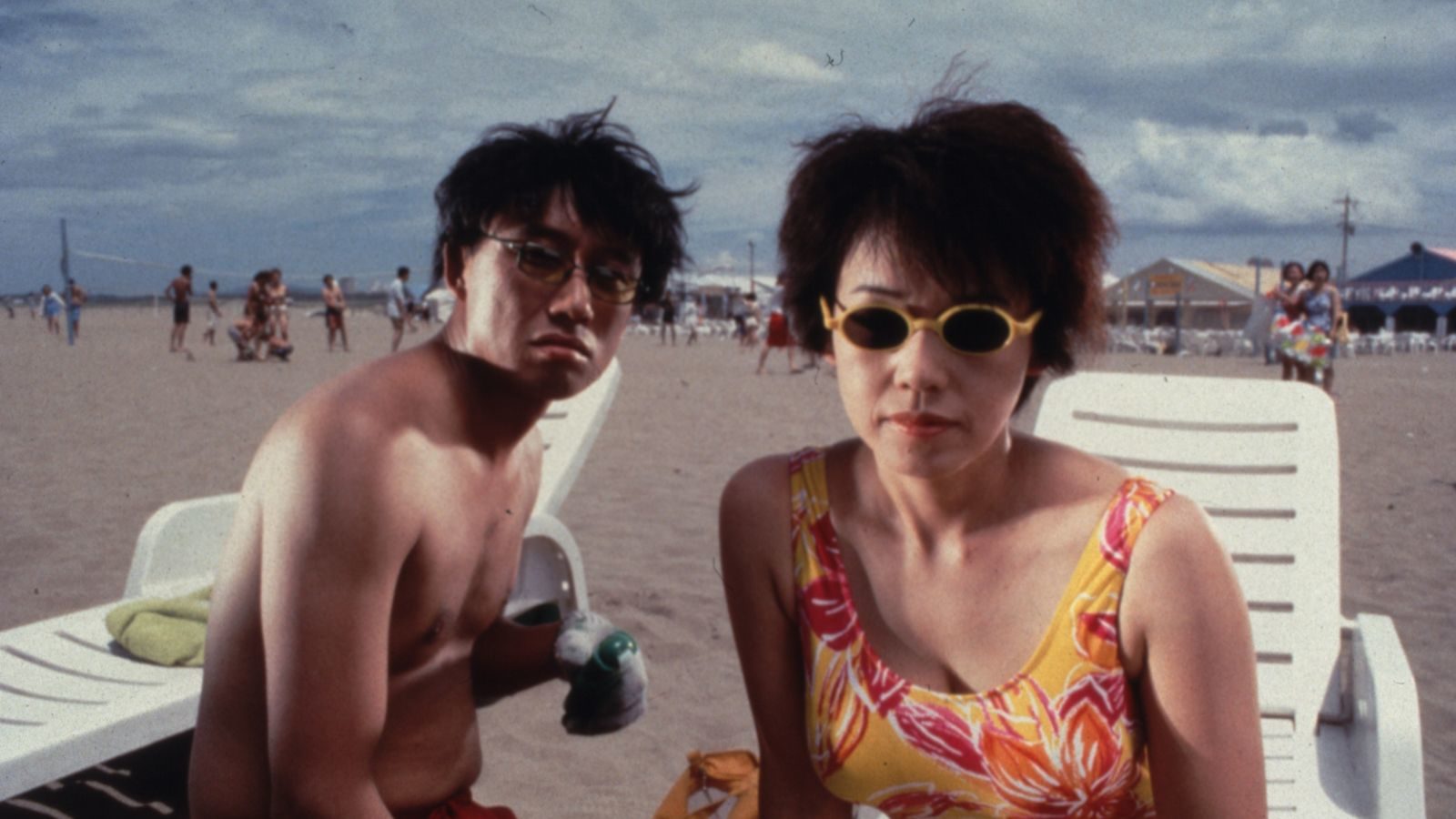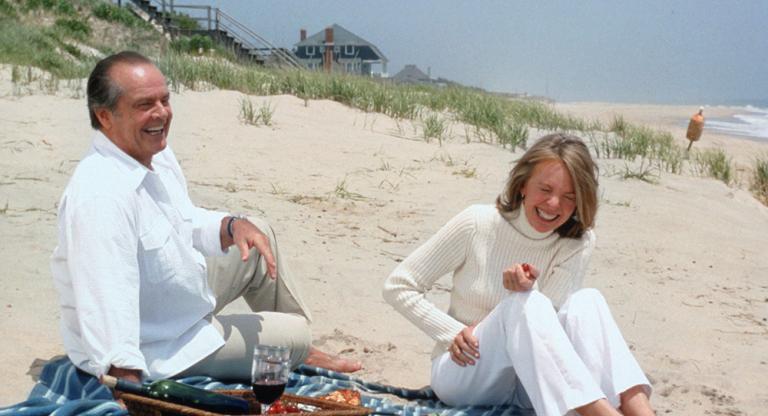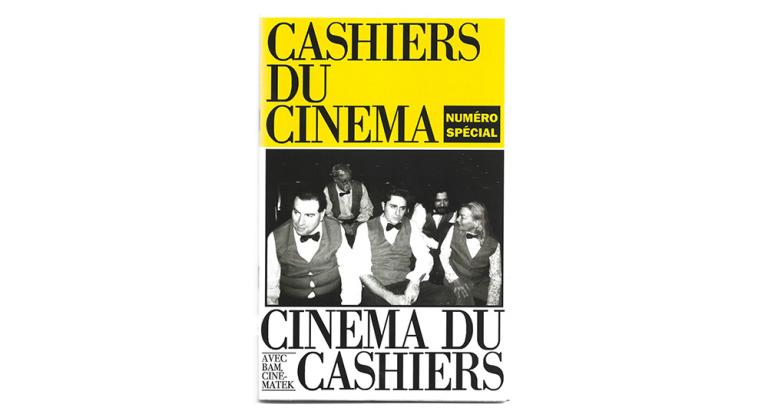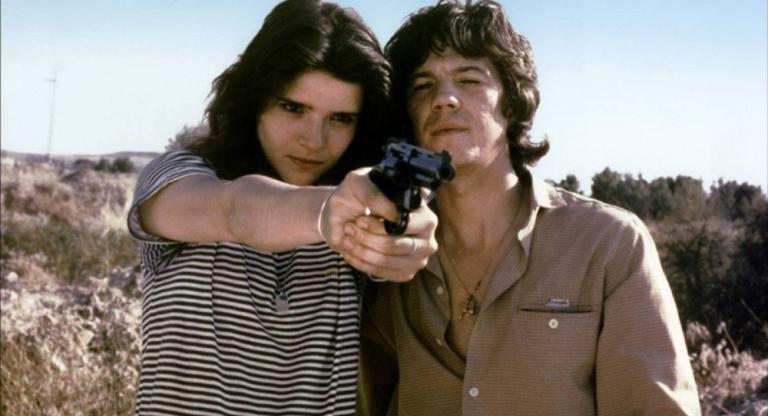In the ordinary, orderly Japanese city where Yoshimitsu Morita’s The Black House (1999) takes place, the colorless offices of the Showa Life Insurance company echo with palpable mediocrity. Wakatsuki (Seiyō Uchino) is a tidy manager, frequently hunched over in his cubicle despite aggressive lap swimming at the rec center. Like his colleagues, whether the uniformed young women who report to him or his trembling supervisors, Wakatsuki is cripplingly frightened of customers whose claims are denied, cringing from confrontations of any kind and constantly dripping sweat. As the agent of funds whose denial has the potential to ruin peoples’ lives, Wakatsuki is so afraid of his fellow human that his disappointing attempts at intimacy become noisy, off-putting expressions of fear.
Enter the Komodas, who lure Wakatsuki to their home in order to “discover” the hanging body of their young son, whose “suicide” they hope will pay out a handsome sum. Frustrated by the lengthy police investigation over the boy’s cause of death, father Shigenori (Masahiko Nishimura) plagues Wakatsuki’s office with increasingly erratic and threatening pleas, while the beleaguered manager begins his own investigation of the couple’s background. Wakatsuki soon becomes convinced that insurance fraud is just the tip of a particularly misanthropic iceberg, and that his own life is in danger.
Featuring a rather familiar plot with less-than-shocking twists, The Black House is far from an average thriller (or horror movie, as it is labeled—likely due to some gore in the second half). The film is peppered throughout with surreal visuals, seemingly unmotivated lighting choices, and the occasional Badalamenti-esque jazz moment; it is constantly underscored by an unease tinged with the absurd. Some of the most memorable sequences take place in a Red Desert–reminiscent countryside vibrating with massive power lines and nondescript monoliths; these symbols of industrialism defiantly populate the brilliant blue-greens of the landscape, humming with invisible, insidious threat. They are likely the symbols of the DNA-damaging environment one character blames for a recent uptick in psychopathy. That theory is discussed over sparklers at a topless bar, just one of the urban environs—like Mrs. Komoda’s (Shinobu Ôtake) beloved bowling alley, shared by people yet bereft of humanity—that serve as pointed backdrops to Wakatsuki’s flowering anxiety.
Rich with symbolism, suspense, and twinges of unreality, The Black House is interested in the rather brittle irony that a life-insurance agent who is clearly uncomfortable amongst his fellow human should be the final bulwark against a supposedly inhuman foe.
The Black House screens this evening, December 3, and on December 9, at Film at Lincoln Center as part of their Yoshimitsu Morita retrospective.



